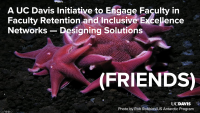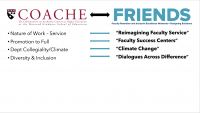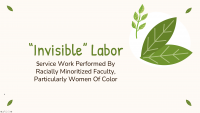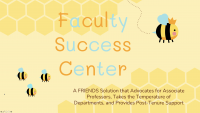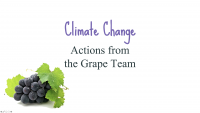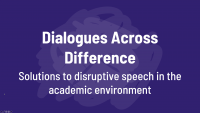Background and Context:
Campus leaders at all levels recognize that some of the most important conditions affecting achievement of UC Davis faculty are the ways they think and feel about such aspects of their employment as work expectations, availability of resources for teaching and research, recognition and reward, opportunities for advancement and professional development, and campus commitment to equity, inclusion and diversity. For faculty from underrepresented and/or marginalized groups, the effect of structural barriers and bias may magnify the real and perceived inequities in these areas, impacting our institution’s ability to retain and build on valuable perspectives from a diverse community of faculty.
UC Davis proposes a series of Faculty Retention and Inclusive Excellence Networks—Designing Solutions (FRIENDS). In year one, Associate Professors will be invited to join working groups involved in design thinking to remove barriers for underrepresented and/or marginalized faculty to thrive in our institution. The project has three parts
- share learning from stories behind data-driven insights on faculty experiences,
- develop communities of future faculty leaders interested in issues of faculty equity, retention, and climate; and
- design innovative interventions to tackle known issues. In year two, two (or more) working groups will have the opportunity to pilot their proposed intervention.
Read the Full Grant Proposal
Read the Original Call for Grants
Our four CoPs will be led by the following ladder rank faculty:
- Raquel Aldana, Professor of Law, co-Principal Investigator
- Rachel Jean-Baptiste, Associate Professor, Department of History
- Kimberly Nettles Barcelón, Associate Professor and Faculty Advisory of Gender, Sexuality, and Women’s Studies; Faculty Director, Center for the Advancemetn of Multicultural Perspectives on Social Science, Arts, and Humanities (CAMPSSAH)
- Lorena Oropeza, Associate Vice Chancellor for Academic Diversity, Office of Academic Diversity, Diversity, Equity and Inclusion; Professor, Department of History, co-Principal Investigator
- Mariel Vazquez, Professor, Department of Mathematics and Department of Microbiology and Molecular Genetics; Faculty Director for the Center for the Advancement of Multicultural Perspectives in Science (CAMPOS)
In addition to the four faculty leads, our entire leadership team, which will convene regularly to provide guidance and support, includes Renetta Garrison Tull, Vice Chancellor of Diversity, Equity and Inclusion; Philip Kass, Vice Provost Academic Affairs; Hendry Ton, Associate Vice Chancellor for Diversity and Inclusion at UCD Health | Diversity, Equity and Inclusion; Adrienne Lawson, Director for Institutional Culture/Climate; Binnie Singh, Associate Vice Provost, Academic Affairs; and Mark A. López, Chief of Staff, Office of Diversity, Equity and Inclusion.
As well, the CoPs will benefit from the contributions and time of exceptional and dedicated analysts – Thomas O’Donnell and Laura Cerruti and a graduate student Claudia Escobar will be supported by Executive Assistant Rosa Deniz.
Based on COACHE survey results and research about the factors that influence faculty climate at UC Davis, we have identified the following four topics, each of which will be taken up by one of the CoPs:
- Challenges faced by women and minority faculty in advancing from Associate to Full Professor. This including the concept of “Epistemological inclusion of efforts in diversity, equity, and inclusion in the University’s intellectual work,” or scholarship that falls outside of disciplinary norms (perceived or actual) with a focus on addressing both formal hierarchies as well as informal processes that serve as barriers to the valuing the work of faculty of color or work that is or is perceived to be on the disciplinary margins (Settles & Buchanan, 2019).
- “’Invisible labor’ service work performed by racially minoritized faculty,” particularly Women of Color (WOC).
- “Developing a critical consciousness among majority faculty to create and support healthy, productive academic climates.”
- Addressing issues related to classroom climate, including hate speech and racial harassment.
Individual participants will receive $1000 to be placed into an academic enrichment account and acknowledgment in personnel file letter describing how participation in this project reflects a significant contribution to diversity.

